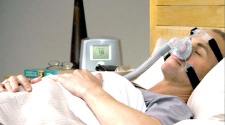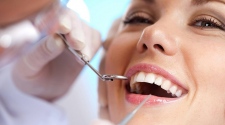It’s no secret that nurses of all types are worked to the bone. With the combination of long hours and a shortage of medical practitioners as well as a seemingly endless supply of patients, nurses have their work cut out for them. For anyone on the outside of the industry, it may seem that nursing is more about giving shots and administering medication than it is about (literally) backbreaking work. The reality is that nurses have a lot of duties that involve repetitive motions, long hours on their feet, and all types of heavy lifting.
The nursing injury cheat sheet.(According to the Bureau of Labor Statistics’ 2012 reports on workplace injuries in the US)
- Nurses are 48% more likely to have wrist, back, and/or ankle sprains or strains on the job, compared to ALL other occupations
- 60% more likely to report chronic soreness and pain, especially in feet and lower back
- Cases of overexertion are reported over 139% more often than in any other profession in the US
- 53% of all injuries while nursing were reported to be due to overexertion
- Nurses and related workers like Orderlies and Attendants have the third highest reported injury rate of ANY profession, just below truck drivers and professional movers
- Nurses have one of the highest risks of exposure deadly bacteria, hazardous chemicals, and infectious diseases
It comes as no surprise that nurses face a lot of danger during their careers. The trick isn’t being scared of the dangers, but learning how to prevent or at least lessen the impact of those dangers. Don’t let the risk of personal injury deter you from taking up a long and rewarding career in Nursing.
Avoiding wrist, back, and ankle sprains:
These are the most common of nursing related injuries and for good reason. Nurses are constantly on their feet for hours on end and are always lifting heavy equipment and people. Nurses are responsible for moving patients from bed to bed and room to room and not everybody weighs the same. To avoid back or wrist injuries while lifting you should:
- Wear protective tape or braces for your back and wrists. Keep them in a storage locker so you don’t have to remember to bring them to work with your every day.
- Invest in comfortable shoes that provide optimal arch and ankle support (that are also non-slip!)
- Regularly stretch your back and hands and give them breaks and massages
- Keep in good physical shape, making sure that your back and leg muscles are sufficiently strong and limber
- Take enough time off. The number one cause of workplace injuries for nurses is due to overexertion. If you don’t take the time off that you need to recover, then you could be putting yourself and others at risk
- Get plenty of rest. A prime cause of overexertion is lack of sleep
- Lift with your legs! (and not your back or even your arms)
- Seek help. At the first sign of back or limb trouble, there is no excuse not to seek immediate medical attention in order to prevent further injury. Many workplace injuries are preventable if caught in early stages.
Avoiding burns, cuts, and infections:
Nurses are lucky to be able to help so many people in so many ways throughout the course of their careers, but the road to that help can be paved with dangerous stuff. Nurses are constantly exposed to people with dangerous and communicable illnesses, as well as sharp and hazardous devices like scalpels and needles. A simple paper cut can quite possible turn into a deadly infection for a nurse due to the fact that they are exposed to many more harmful bacteria than the average worker. To prevent those burns, cuts, and infections:
- Careful handling of needles and sharp objects, especially if the patient is suffering from a communicable disease
- Cover all cuts and abrasions after sterilizing them in order to prevent infection
- Treat all sharp and dangerous objects with respect and care
- Hot coffee can be a danger. Be careful when rushing with coffee or hot tea
- Make sure that all medical equipment is properly cleaned and maintained in order to prevent breakdown and injury
It seems like there is a lot more to becoming a nurse outside of just acing your NCLEX or making it through your nursing classes. It seems that way, because it’s true. Becoming a nurse, and having a long, healthy career as a nurse requires a lot more of a person than just about any other job. You have to take it upon yourself to make more time for your own care than you would with any other job. Don’t forget that even though taking care of others is extremely rewarding, it is just as important to take care of yourself.
















